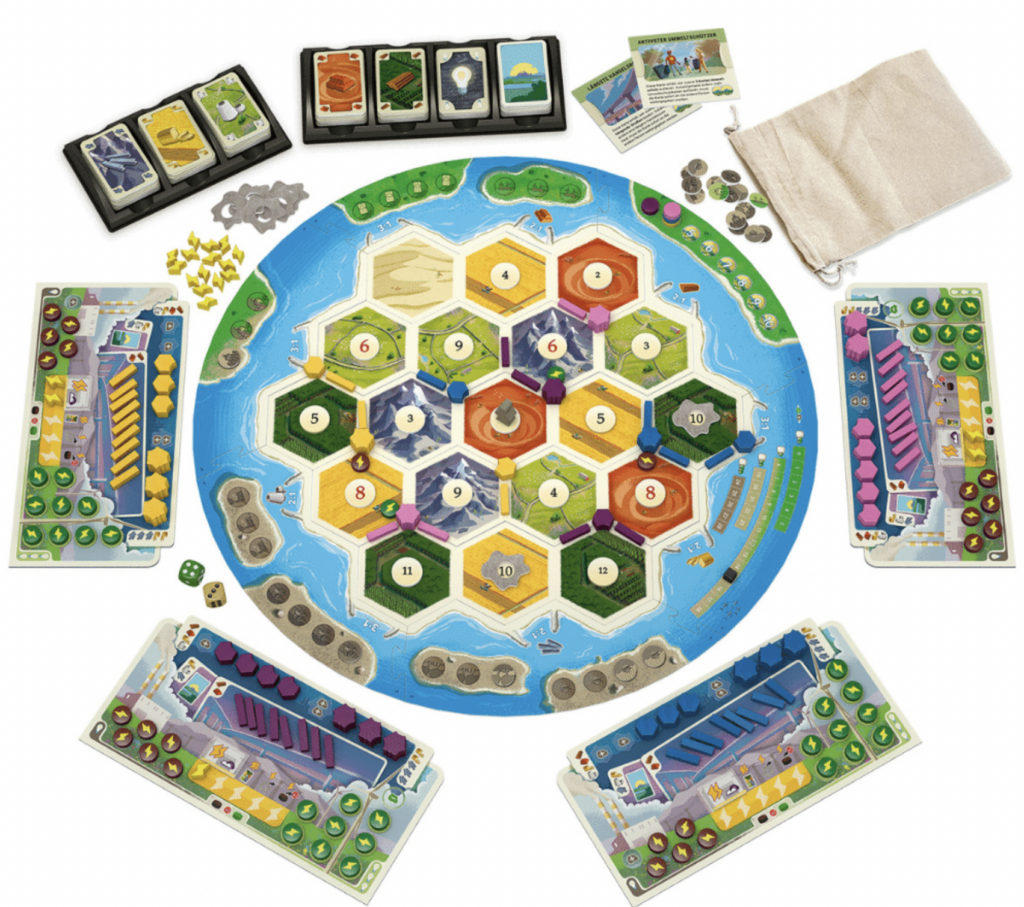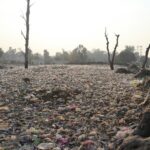
Algarve is the most critical Portuguese region in the face of the climate crisis
Research by the US space agency NASA points to the Algarve region as the most critical in the face of climate change in Portugal. An
We didn't find any happenings mapped to your criteria.
Try the traditional search to find articles not yet mapped with RUA.
We didn't find any happenings mapped to your criteria.
Try the traditional search to find articles not yet mapped with RUA.
We didn't find any happenings mapped to your criteria.
Try the traditional search to find articles not yet mapped with RUA.
We didn't find any happenings mapped to your criteria.
Try the traditional search to find articles not yet mapped with RUA.
Building with minimal pollution is the challenge of the board game Catan: New Energies.
The classic board game Catan has launched a new edition with a 21st century twist: energy production and pollution. In the Catan: New Energies version, the game takes place in the present day (instead of the pre-industrial period) with real elements such as power stations and pollution, where the challenge is to avoid climate catastrophe.
The original game consists of collecting and using resources (such as bricks and wood) to build and expand settlements, cities and roads in a world where growth and development in construction are good and even necessary.
In the New Energies edition, players have to trade goods such as steel and fabric and build towns, cities, roads and power stations, which can work in two ways: with fossil fuels (which allow you to build faster, but also create more pollution and can cause disasters) or with renewables (a slower and more expensive process that extends the game and offers other routes to victory).
If a player builds a fossil fuel power plant, for example, the level of urban growth and greenhouse gases increases – indicated on the board itself with a small marker. When this happens, the potential for climatic events, such as flooding or air pollution, also increases. In turn, these climatic events can block players’ resource production and, consequently, their ability to expand settlements and win the game.
The match can end early, for example, if the players continually opt for resource-intensive activities such as building cities and towns. In this case, the player with the most renewable energy plants wins. However, the other players can try to avoid a premature end by building more renewable energy and removing fossil fuel plants.

The new version began to be developed in 2011, after Erik Assadourian, a researcher at the Worldwatch Institute (a sustainability think tank), presented Catan’s team with a scenario called Oil Springs, based on the management of oil resources.
The Oil Springs scenario, together with the WWF’s 2050 climate solutions report, inspired the idea of a Catan that deals with energy as a resource, says Benjamin Teuber, CEO of Catan’s production company and co-developer of the new game, to CNN.
Assadourian ended up being a consultant in the final stages of development to ensure that the game’s climate science was within the bounds of reality, and he also wrote a climate almanac at the back of the rulebook to build up the game’s thematic background.
So, the game’s creators have endeavored not only to balance fun with environmental science, but also to reflect reality, showing the complexity of solving climate change by adding elements that make Catan more complicated to play – just as it is in the real world.
“We wanted to make this look like a simulation, so to speak, of reality. And that’s why it’s important that you can win with fossil energy. It would be bad, I think, if we balanced the game so that it was impossible, because then we’d be sending out the wrong message – we wouldn’t be sending out the message of reality. The more real the game is, the more people will talk about it seriously,” says Teuber.
The environmental concern can also be seen in New Energies’ own physical materials, which are made from cardboard and wood from sustainable sources.
Before the official launch, New Energies was tested by both Catan employees and external players. In both cases, players were indecisive and played too aggressively, with the aim of “growing, growing, growing” by building power plants from fossil fuels.
“We destroyed the world every time we played,” says Tauber. “It sucked because the game would stop again too soon, and next time maybe we should start earlier with green energy.” However, the following games were marked by heavy discussions. “We all felt a bit bad, we learned one or two things and in the next game we played differently,” he describes to NPR.
For Teuber, board games can help move the conversation forward. “The game itself isn’t going to change the world, but maybe it will allow us to think a little: ‘Maybe I have more power to make things change’.”
According to Rachel Kowert, a psychologist specializing in games, adding elements of the climate crisis to games can help make the topic more accessible. “It adds a playful and fun element. It makes it a social activity. Not many people are going to sit down and read documents about climate change, but people love Catan,” she told CNN.
Although it has been on the table, the new version of Catan does not talk directly about climate change, including in the name of the game. “We wanted it to be positive and forward-looking, leaving this space for hope,” explains Kelli Schmitz, Brand Development Director at Catan Studio. Japan Times.


Research by the US space agency NASA points to the Algarve region as the most critical in the face of climate change in Portugal. An

G20 countries such as Brazil, Germany, South Africa and Spain claim that a 2% tax on wealth would reduce inequality and raise funds to minimize

This article addresses an action that promotes the adoption of urgent measures to fight climate change and its impacts. SDG 13 also aims to improve education on climate change mitigation and impact reduction.
 To discover businesses that are actively working to contribute to this Sustainable Development Goal, click here.
To discover businesses that are actively working to contribute to this Sustainable Development Goal, click here. To read news, interviews or tips related to this Goal, click here.
To read news, interviews or tips related to this Goal, click here.Esta publicação também está disponível em:
![]() Português (Portuguese (Portugal))
Português (Portuguese (Portugal))

